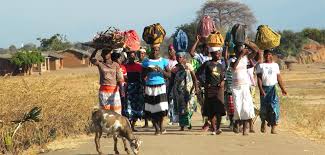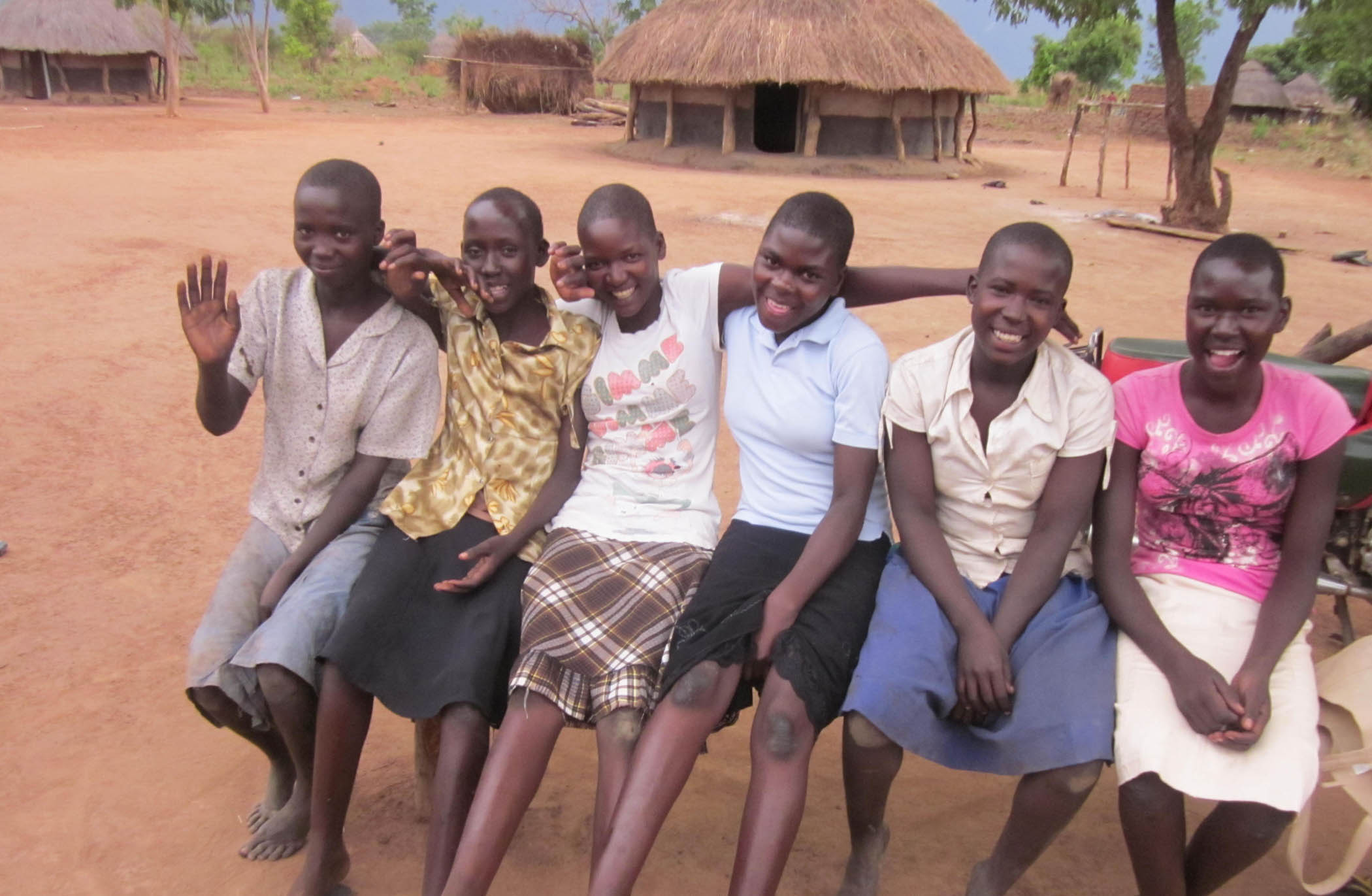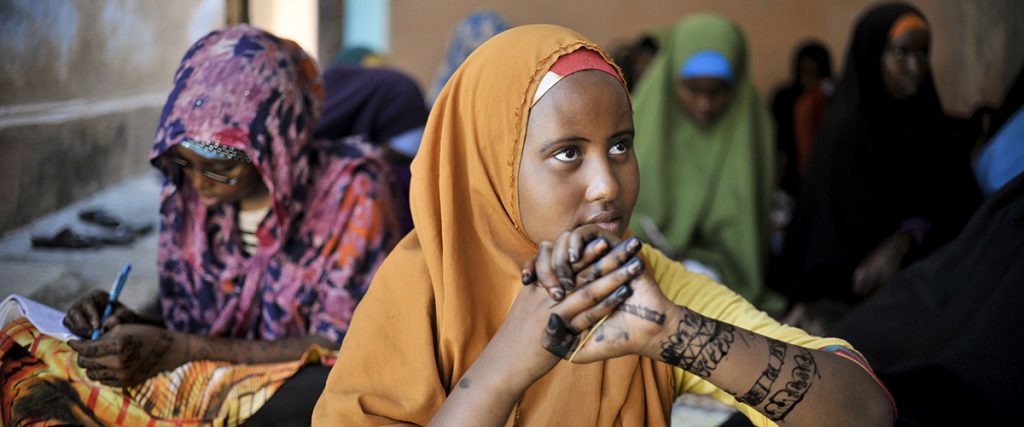When you arrive at Ilkurot Village in Arumeru District, the first thing you notice is dust and cattle grazing although there is no grass.
A few steps further, there is a mini-market, where there are shops and women selling some fruits and a bar, where customers socialise.

But few steps away lies a village, and what attracts one’s attention is the fact that despite the government’s effort to end child marriage in the country, the Maasai community continues to marry off teenage girls. Some of the girls lose their rights to education, development and life as some of them die, while giving birth.
Among those affected by this tradition include Ms Nembua William, 25, who was married at the age of 12 and had her first daughter, when she was 14 years old.
This is highlighted in a report by Human Rights Watch 2014 on Tanzania, which says about 8,000 girls drop out of school every year due to pregnancy.
Global statistics on child marriage indicate that Tanzania is one of the countries with the highest number of child marriages. On average, two out of every five girls are married before the age of 18.
Data from different organisations including Unicef indicates that up to 16 girls under the age of 18 are impregnated daily in Tanzania.
Standing next to her 11 year old girl, Ms William says life has not been easy for her, as she has to carry at least 35-50kg of gravel to get Sh4000 to feed her two children.
“We are normally betrothed at birth. In my case, when I completed my primary education, I was married off,” she said.
According to her, she had birth complications and was advised to use of family planning services to avoid having another child as her body was not yet ready.
She used birth control pills until she was 22 years, when she had her second baby, but life has not been all that easy for her. She says she doesn’t know what the future holds for her and her children because all she knows is to work hard, carrying heavy sacks of gravel to feed her children.
Tanzania currently has several methods of contraceptives including condoms, pills, female sterilization, vasectomy, injectable, implants and IUDs.
Statistics on family planning in Tanzania
According to Tanzania’s adolescent fertility rate (135 birth per 1000 births) is more than double the global rate among 15-19 year olds (49 births per 1000 girls).
At national level, demand for family planning among adolescent girls is still very low at 21 per cent. Two thirds of adolescent girls aged 15-19 years are not using contraceptives.

The story of Ms William is not different from another 12 year old girl, who was married at the beginning of this year, according to her mother Naishiye Satoti, who is a widow with five children.
According to her, it was difficult to take care of the children without husband and when an opportunity presented itself, she married off her daughter.
It is dry in September in Arumeru. There is no grass and the area is dusty even as women go to carry murram to earn a living, as they await the planting season. A villager of Ilkurot, Mr Lenyani Kivuyo, said he had a wife and five children, who were all of school age. He said he did not support men to marry off their daughters because it denied them the right to education and sometimes the right to live.
According to July 2016 reports, the High Court struck out off sections 13 and 17 of the Law of Marriage Act, 1971 that allows children under the age of 18 to be married. Although the ruling is not a panacea for this perennial problem in Tanzania, it helps curb underage marriage. The court stated that sections 13 and 17 of the Law of Marriage Act, 1971 were unconstitutional and that it was illegal for a person under the age of 18 to be married.
“If we discover that a teenage girl has been married, we order the husband and parents to take her back to school and we set conditions for the husband,” he said.
He noted that village leaders were strict to ensure teenage girls were taken back to school.
He further said many girls got married by men aged 12 and 35 years. In another development, another leader from Ilkuroti Village, Mr Isaack Kivuyo, said village leaders together with Arumeru district officials had been collaborating to educate villagers on the importance of taking their children to school.
He said education concerned both boys and girls because the former instead of going to school were tasked by their parents with grazing cattle, while the latter were married off at a tender age.
“In the past, our girls were married off at a tender age, but now the tradition is ending due to strict rules imposed by the government,” he said.
Olkokola Chairman Alois Robert said they worked hard to end child marriage, but at the end of the day it all depended on the father of the family.
“We impose strict rules, but marriage arrangements are made secretly and those involved are not ready to say the truth,” he said. There is also an increase in the number of rape cases. Although the Sexual Offences Special Provisions Act, 1998 imposes heavy punishment for rape, the rate of rape cases is high.
Meanwhile, midwife Najeriani Somuyun, 80, says there are at least five midwives in their ward to help women give birth as health centres are far from the ward.
She says she helps at least three pregnant women to deliver at every two weeks and some of them are girls, who sometimes experience birth complications. These are referred to Olturmet District Hospital.
“I have been a midwife for over four decades but am glad none of the women have died in my hands,” she said. She says she is normally paid either a kilo of meat or Sh5,000 for her services. For his part, Olturmet Medical Doctor, Dr Lucas Kazingo, said many girls were referred to the district hospital after they experienced birth complications. “The number is average, but we still experience some deaths every year,” he said.
Arumeru Social Welfare Officer Beatrice Tengi said they had held countless meetings with chiefs and village leaders to educate them on the ban of child marriage.
“We have also educated them on the laws related to children and cautioned them to immediately report any persons found violating the laws.
She said they had formed a child security and safety team in wards to investigate and report any case of child abuse, including child marriage.
“It’s challenging as the people we expect to inform us, don’t do so while the problem continues,” she said. Ministry of Health, Community Development, Gender, Elderly and Children Community Development Director Magreth Mussa said the government was facing challenges, when it came to preventing child marriage in the Maasai community.
She said there had been interventions in Mwanza, Tarime, Iringa, Mbeya and Tanga, among other regions, but it was difficult for the Maasai due to their nomadic life style.
“We have entered into partnership with World Education to start interventions in Manyara, where we hope to reach them and make them aware of the rights of the child and its implication if violated,” she said.
She noted that the government has a National Strategic Plan to end violence against women and girls and hope to have reduced from 37 percent to 10 percent by 2022.

